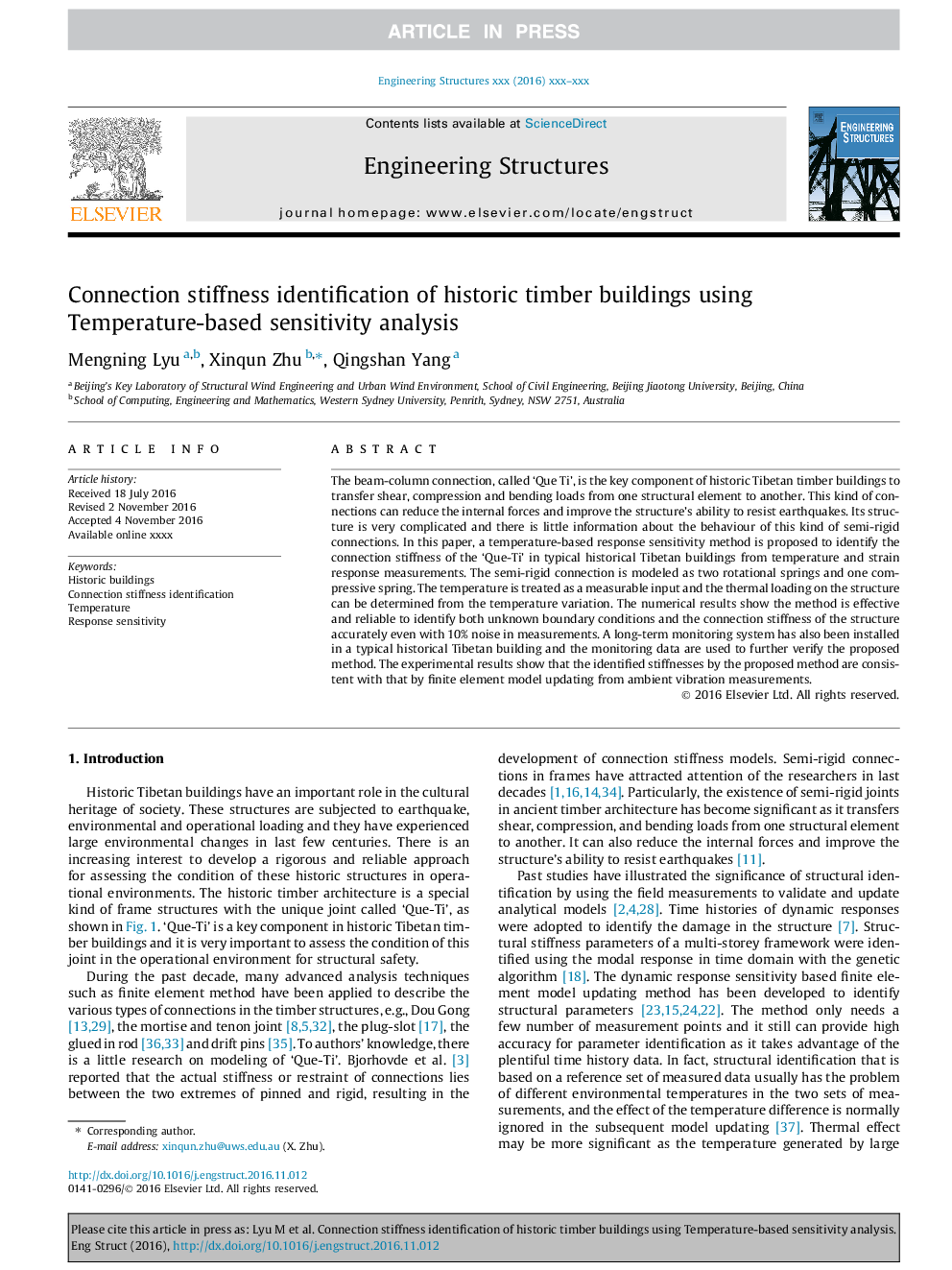ترجمه فارسی عنوان مقاله
شناسایی سختی اتصال ساختمان های ساختمان های تاریخی با استفاده از تحلیل حساسیت بر اساس دما
عنوان انگلیسی
Connection stiffness identification of historic timber buildings using Temperature-based sensitivity analysis
| کد مقاله | سال انتشار | تعداد صفحات مقاله انگلیسی |
|---|---|---|
| 149888 | 2017 | 12 صفحه PDF |
منبع

Publisher : Elsevier - Science Direct (الزویر - ساینس دایرکت)
Journal : Engineering Structures, Volume 131, 15 January 2017, Pages 180-191
ترجمه کلمات کلیدی
بنا های تاریخی، شناسایی سختی اتصال، درجه حرارت، حساسیت پاسخ،
کلمات کلیدی انگلیسی
Historic buildings; Connection stiffness identification; Temperature; Response sensitivity;

